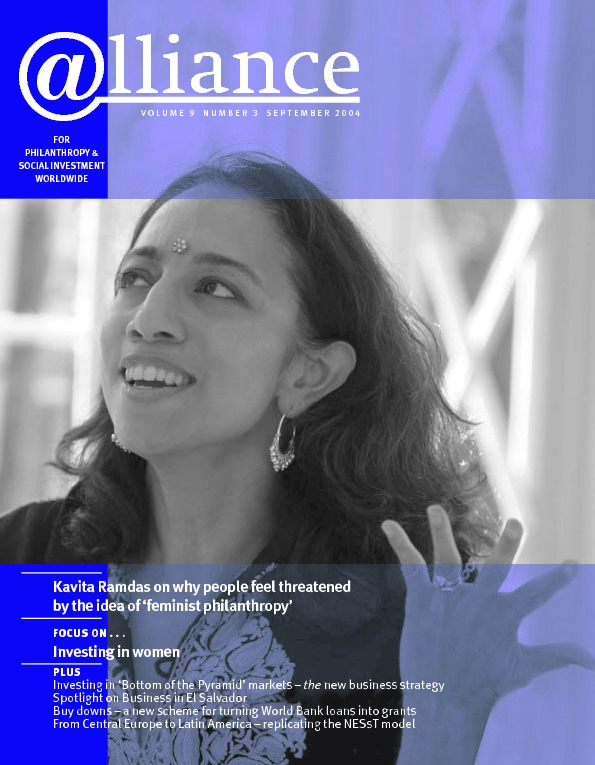Fund>>forward, Making the Case and the Women of Color/International Development Incubator are three of the tools most recently developed by Women’s Funding Network (WFN) to help its members – 100 women’s funds around the globe.
Over the past 30 years, women’s funds have given over $200 million in grants and raised over $400 million for programmes and endowments. WFN acts as the broker for the lessons learned by these funds, distilling them into best practice and creating practical tools for its members.
Informing and educating
One such tool is the recently created fund>>forward. Fund>>forward helps WFN members convey the power and achievements of the women’s funding industry, and how their local and regional work links to this broader picture. It also acts as a marketing and fundraising tool for members.
WFN also hosts an annual conference which provides a good forum for exchanging views and information. Not only do members build practical skills in workshops that address common challenges (fundraising, board development, grantmaking and communications), they can also break out of the isolation in which they generally work.
Organizational development
Strengthening women’s funds as individual organizations is an important element of WFN’s work. To that end, we offer online toolkits and teleconference training and research for fundraising, media know-how and organizational assessment tools. One of these assessment tools, Smart Growth, helps members identify the life stage and capacity of their organization and to detect factors that might help or hinder their growth. It is designed to be useful to all member funds, irrespective of their location and type. So far it has been very effectively utilized with funds in South Africa, Netherlands and the Ukraine.
One of the tools most recently developed, Making the Case,[1] is designed to give funds a way to measure the social change impact of their grantmaking. It helps identify the indicators of social change and prompts users to provide evidence for how much change has been made. Users learn to integrate both quantitative and qualitative measures into their ‘success stories’.
After an extensive two-year testing process with over 50 organizations, Release 1.0 of the tool will be available for use by WFN member funds by 15 August 2004. Plans are already in place for a second release by April 2005. Release 2.0 will include revisions based on an international testing of the tool with Mama Cash’s grantee partners from Africa, South America and Europe.
Supporting fundraising
One of the challenges women’s funds everywhere face is the need to raise significant money from donors. The Women of Color/International Development Incubator was designed to promote fundraising leadership by women of colour and women from the global South. It helps change participants’ view of money from being a ‘necessary evil’ to being a powerful tool for social change. A measure of its success to date is that the first class raised over $800,000 during their six-month participation in the project.
WFN also works to identify innovative funding sources. Last year, WFN members Semillas (Mexico), Nirnaya (India), Tewa (Nepal), WHEAT Trust (South Africa) and African Women’s Development Fund (Ghana) all recommended a selection of grantees for Global Giving’s online campaign. WFN coordinated this effort and, on behalf of its member funds, prepared 17 profiles for inclusion in Global Giving’s online catalogue. Global Giving marketed its catalogue to sources such as the Hewlett Packard employee giving campaign. Fifteen of the 17 projects received support, totalling $17,000, and three received more than the amount they requested.
While most foundations were feeling the pinch of the economic downturn in 2003, the women’s funding movement continued to grow. In five years, WFN member funds’ assets have increased from $180 million to $266 million. They have built thriving networks, mentored each other and commissioned landmark research. The network has a generous and empowering culture, which does not just involve giving in communities but also sharing between the funds themselves. We have a wealth of assets to offer to philanthropy and to communities. Supporting women’s funds is an ideal way to get involved in creating a more just, compassionate and equitable world.
1 Making the Case: A Learning and Measurement Tool for Social Change.
Christine Grumm is President and CEO of Women’s Funding Network. She can be contacted at cgrumm@wfnet.org
For more information about Women’s Funding Network, see http://www.wfnet.org






Comments (0)